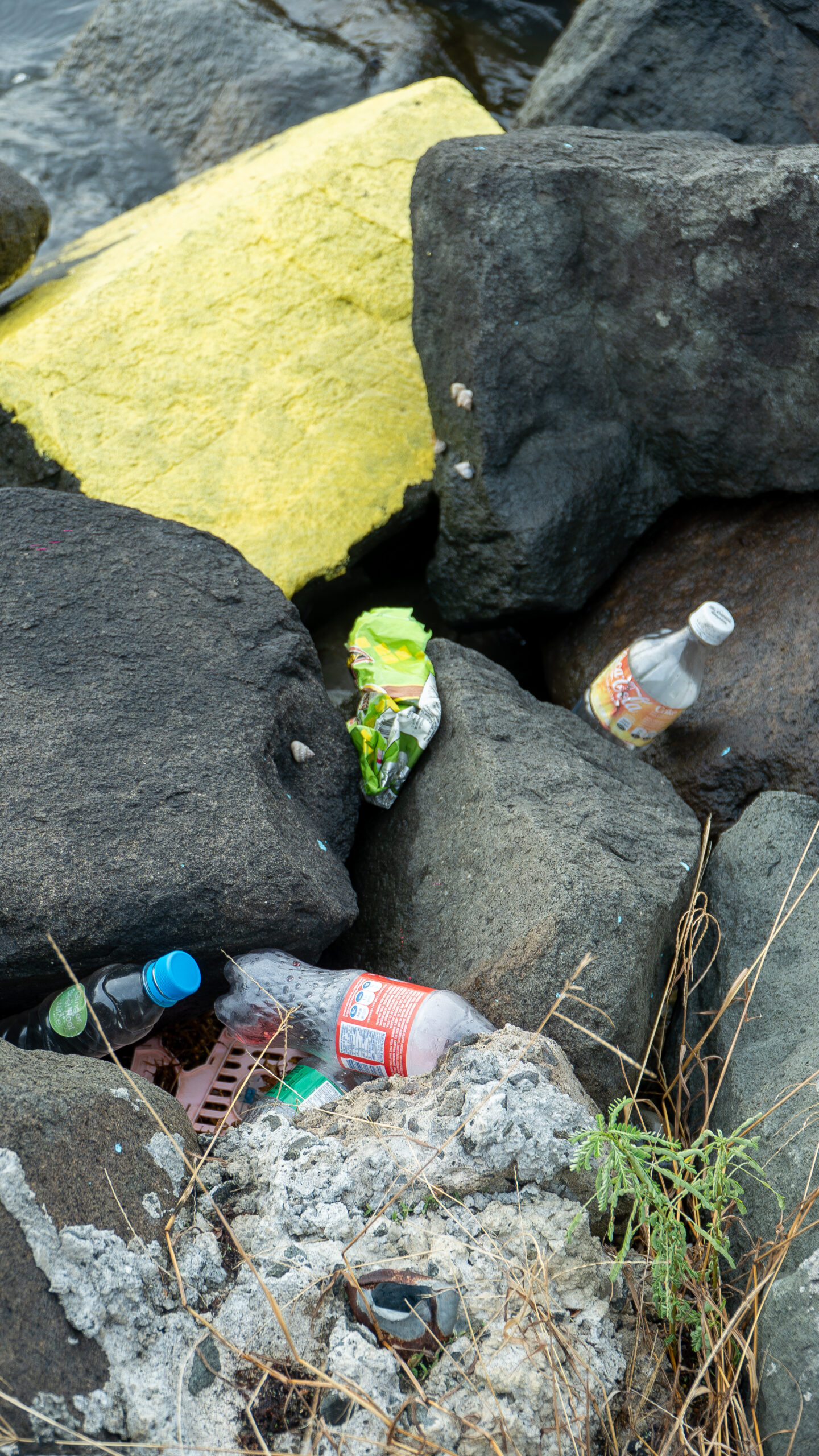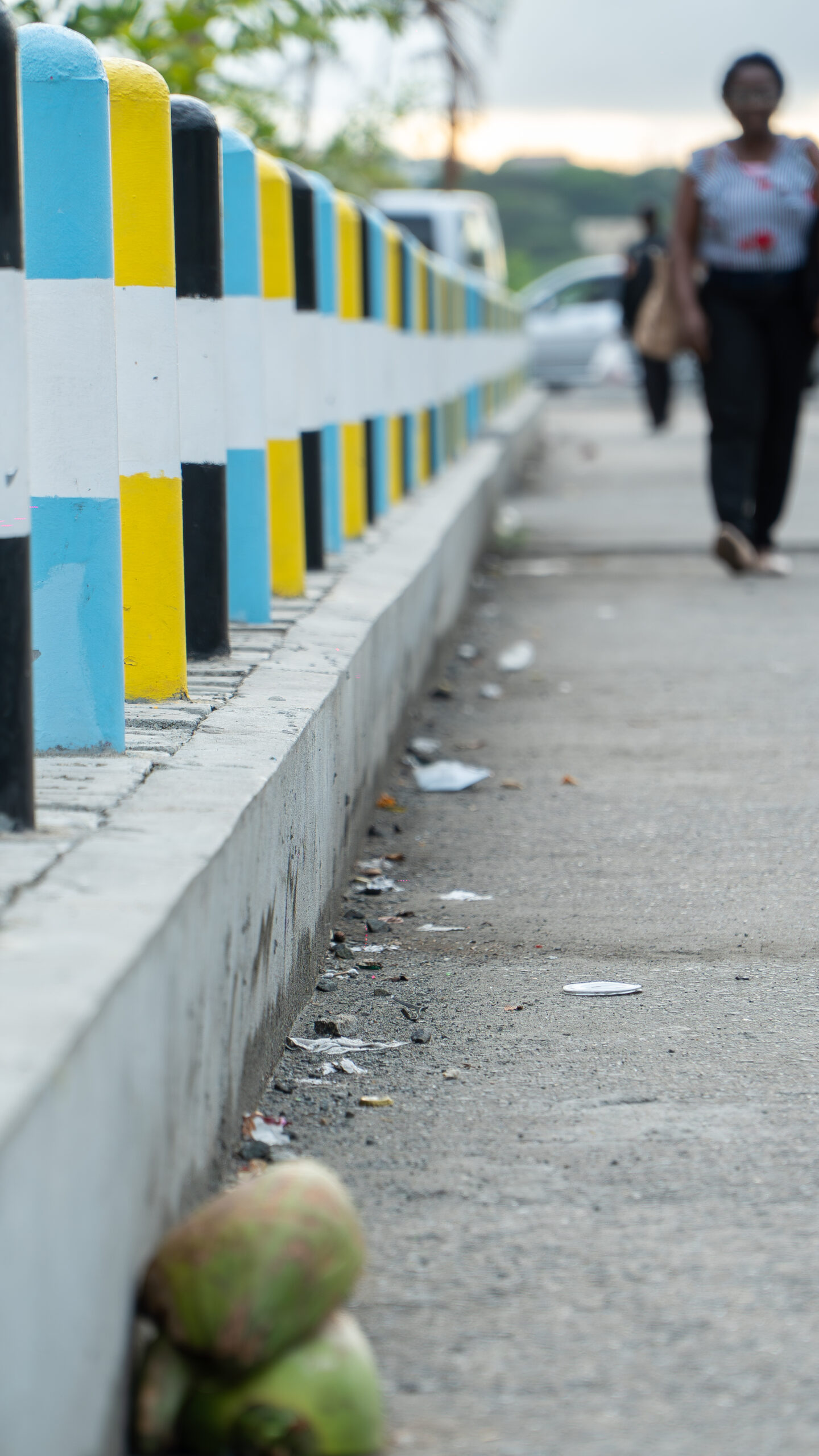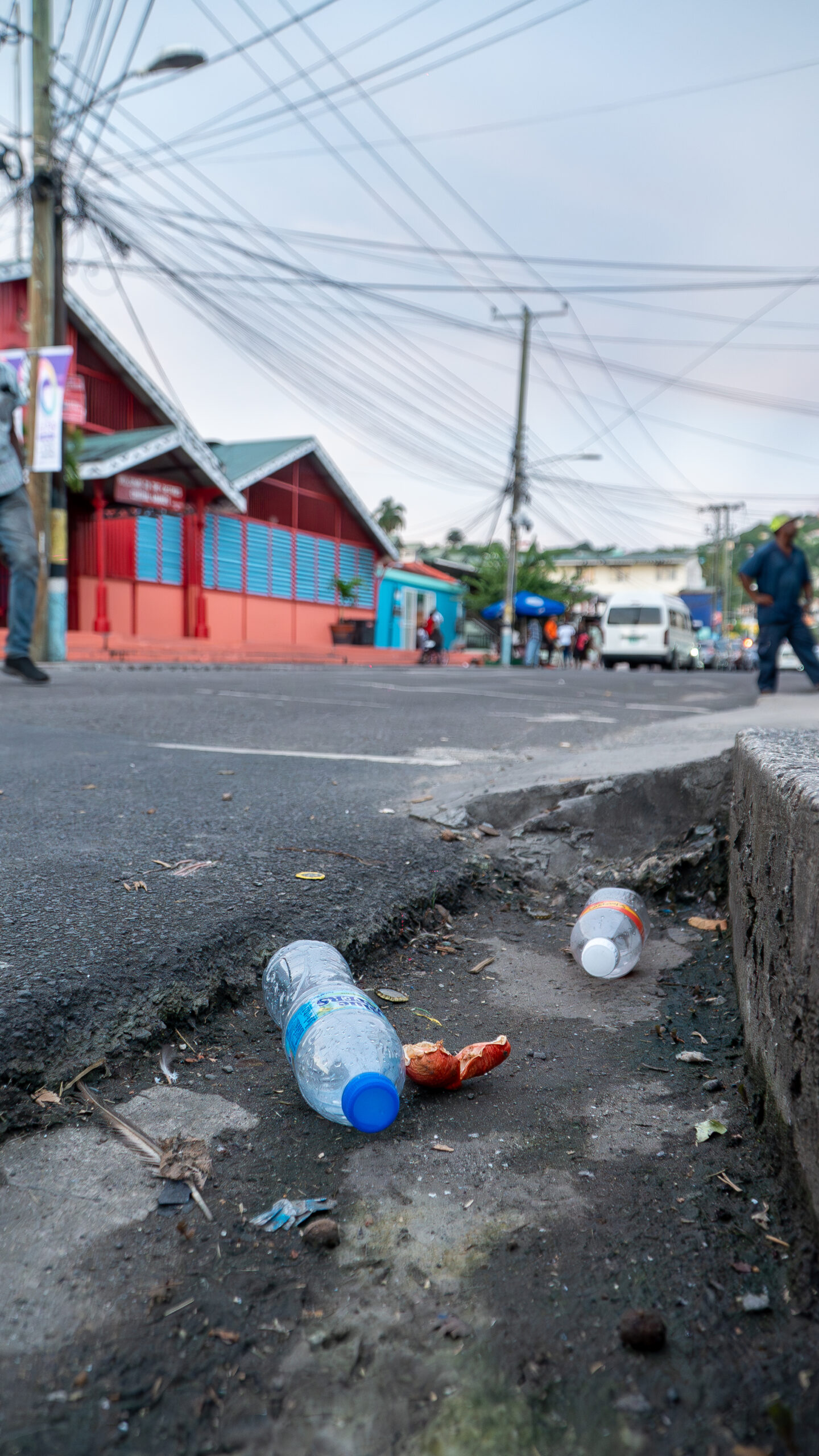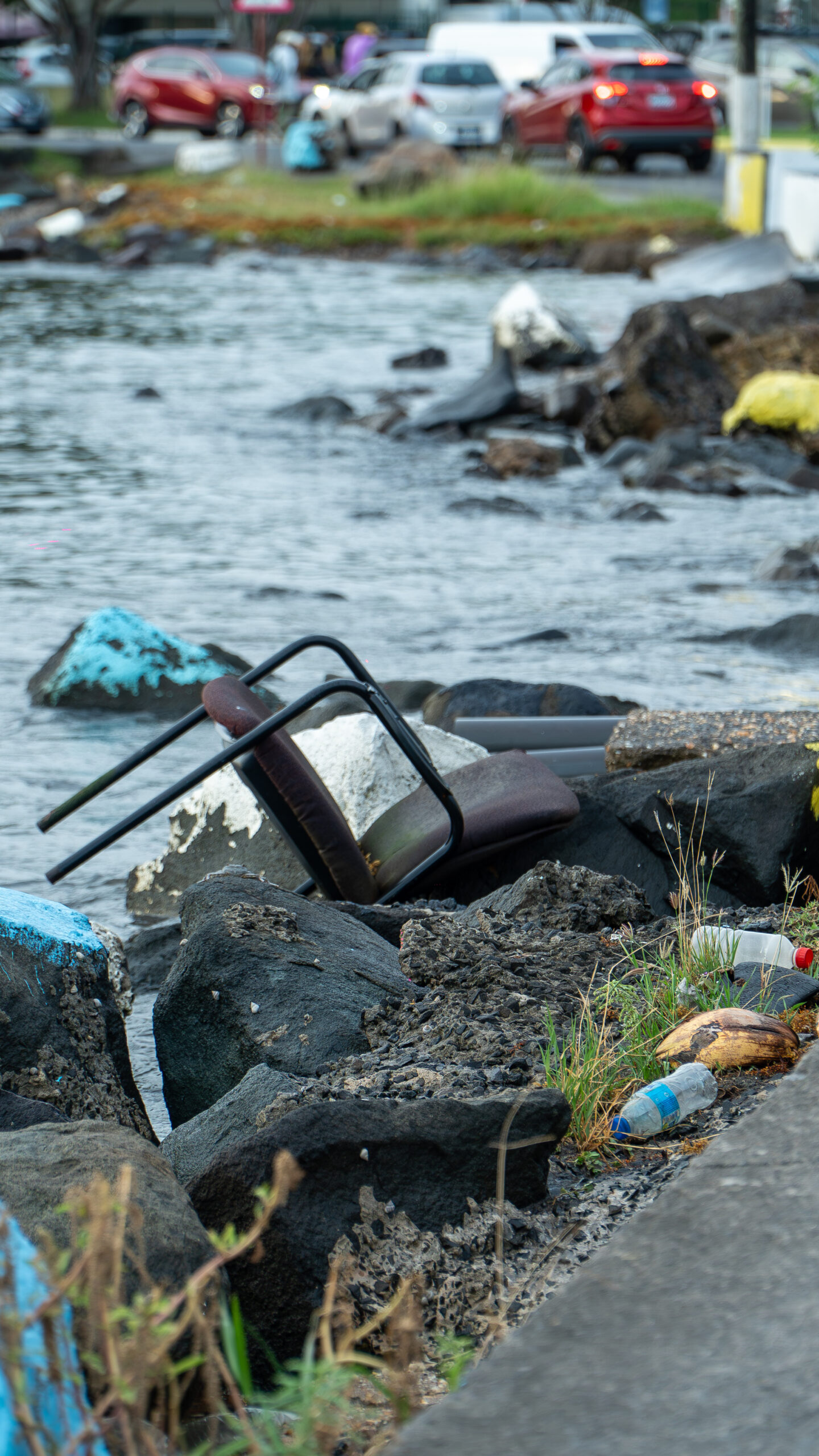Roadside garbage and rivers choked with plastic are not the images that define Saint Lucia’s allure. Yet behind the lush greenery that draws thousands of visitors each year lies a quieter, persistent crisis — one of waste and neglect.
It’s a truth even Dr James Fletcher, Saint Lucia’s former Minister for Sustainable Development and current CARICOM Climate Envoy, finds difficult to ignore.
“Saint Lucia prides itself on being a tourism destination… And we do have stunning natural beauty but when you look at our roadsides, Saint Lucia is among the worst in the Caribbean,” Fletcher admitted frankly. “You’d be hard pressed to find many that are worse than we are when it comes to how much litter there is in plain sight, and the way people just indiscriminately litter.”

Fletcher’s words cut deep, especially in a country that markets itself as The Helen of the West Indies — a name synonymous with beauty. But the litter scattered across verges, beaches, in and around rivers tells a different story.
The problem, he said, isn’t confined to the occasional tossed bottle or food container but extends to people dumping household garbage in places they assume go unseen. “They’ll take garbage from their homes and drop it at Pigeon Island where they figure nobody’s watching. We really need to do something about this — aesthetically, socially. We need to change the mindset of people.”
Fletcher warns that the costs of this behaviour stretch far beyond the island’s appearance. “A clean country is a healthy country,” he said, noting that plastic containers collect water and attract mosquitoes. Food waste draws rats. And when drains are blocked, heavy rainfall leads to flooding — damaging homes and destroying property.

He also pointed to the toll on marine life, which bears the brunt of pollution carried downstream. “The amount of plastic washing into our oceans is clogging coral reefs and mangroves,” he said. “Fish are now feeding on plastic. It’s frightening to think that one day we could have more plastic than fish in our oceans, and even more frightening to think of how much of that ends up in our own bodies.”
If there’s any cause for optimism, it may be found in the small but visible shifts in consumer behaviour. When Massy Stores introduced a charge for single-use plastic bags in 2018, the public response was heated. Many accused the supermarket chain of using environmentalism as a pretext to increase profits. But seven years later, the difference is visible.
According to Emlyn Jean, information and communications manager at the Saint Lucia Solid Waste Management Authority, Saint Lucia once had a noticeable problem with plastic bag litter, but that issue has since declined. She also links it to the possibility of plastic bags carrying greater value than they once did.

Other businesses, including CPJ and M&C, have since implemented similar policies. Fletcher called the move by Massy “progressive” and “unsolicited,” noting that it showed leadership from the private sector rather than government. “It wasn’t just about charging for bags,” he said. “Massy also provided reusable ones. That combination really helped change behaviour. And the good thing is, you don’t have to buy their bags — you can bring your own.”
He believes the next logical step would be to phase out the sale of single-use plastic bags entirely. “The policy’s been in place long enough,” he said. “People are conditioned. It’s time to stop selling them.”
Government-led policies can also play a role. The Styrofoam and Plastics (Prohibition) Act, passed in 2019, appears to have eliminated styrofoam containers from circulation — an improvement Jean says that has been noticeable in recent years as far as waste is concerned. But she admits that single-use plastics, particularly water bottles and fast-food containers, continue to dominate the waste stream.

Acknowledging the need for even more bans and better implemented environmental policies, Fletcher argues that while bans are necessary, they must be paired with affordable, accessible alternatives. “But when you ban items, you must give people something affordable to use. That’s where we can get creative — use banana stems or bamboo to make packaging. We have the raw material right here.”
He also once championed the Returnable Containers Bill during his time as minister. The bill, which would have allowed customers to return reusable containers to outlets for compensation, was first introduced long before his tenure in 2011 to 2016. And he says, while he pushed for its reintroduction, it never made it to law, but he believes it remains a viable and necessary policy tool.
Policy, education and public awareness are crucial, but changing behaviour — particularly among adults — remains the hardest but most essential. Fletcher believes that real progress can also mean changing how people think about and treat waste. Cleanup drives, he said, are necessary but shouldn’t become a national routine. “We keep doing these cleanups, but the way we stop having cleanups is by stopping people from throwing things down that need to be cleaned up.”




St. Lucians are nasty. Plain and simple. Beaches littered with trash. Streets littered with trash. Halls of power littered with trash.
Styrofoam is still being used at every food truck. Plastic bottles and bags are still strewn everywhere from the beaches to the rainforest. There is no proper government led garbage cleanup. No real recycling opportunities. St Lucia’s litter/pollution problem is a real scar on this beautiful island. Much bigger efforts are necessary to make a real dent in this very real problem